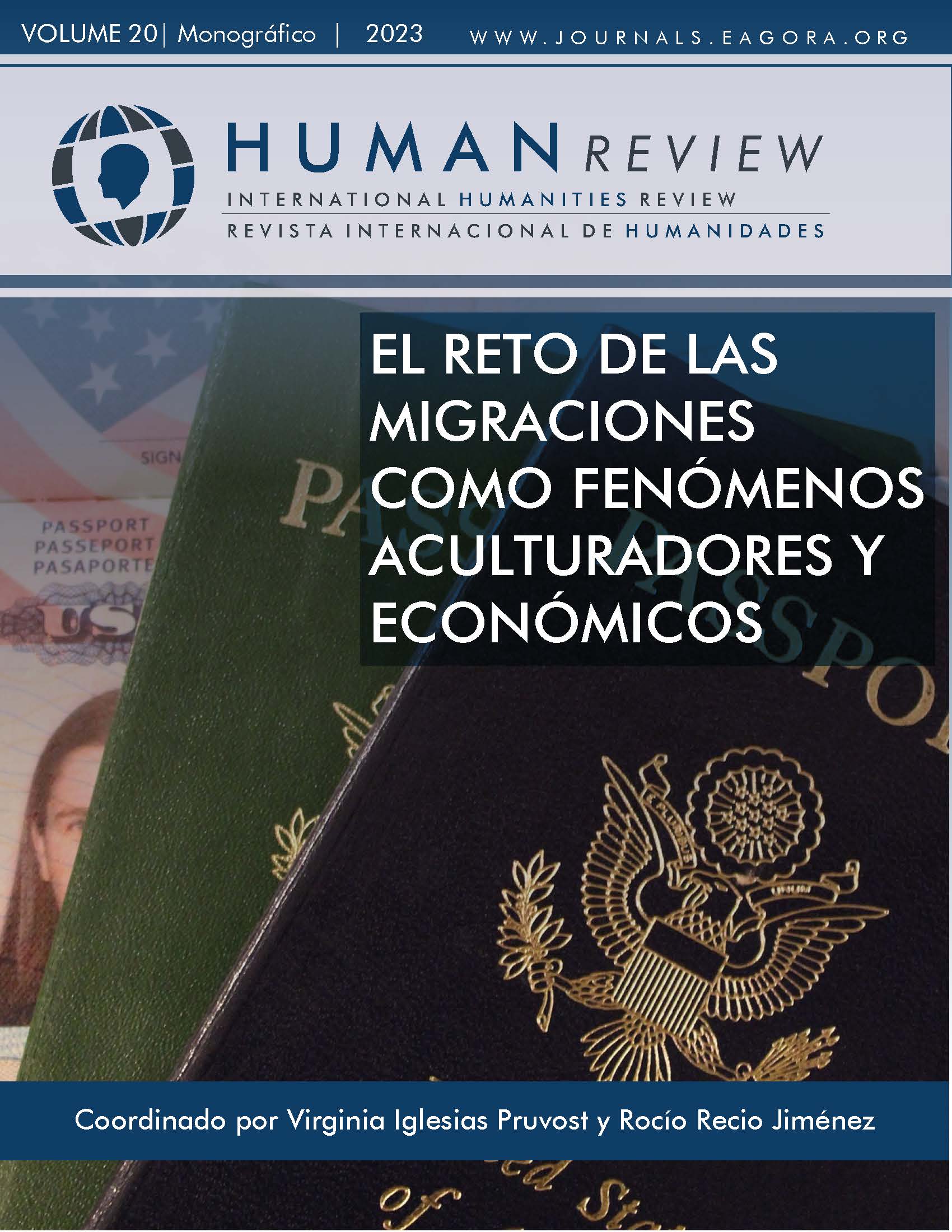The emigration of Spanish scientists to Bochum: a difficult adaptation and an out-of-synchronized return
DOI:
https://doi.org/10.37467/revhuman.v20.4934Keywords:
Spanish migration, Young migrants, Brain drain, Qualified migration, Migratory processes, Adaptation, Sociocultural insertionAbstract
This paper analyzes the speeches of Spanish scientists residing in Bochum (Germany), and of those who, after spending a long period in that city, had returned. It shows how they experience a difficult adaptation characterized by a feeling of job undervaluation, a lack of stability and the longing for certain aspects of Spanish culture such as the quality of leisure and the greater sociability of its population. On the other hand, a singular return is observed due to the desynchronization with their places of origin, because they feel that time has passed very quickly in them, while for them their lives have slowed down.
References
Aragón, R. R. y Bretones, F. D. (2020). Uncertainties generated during the Brexit process among highly qualified Spanish workers. Revista Española de Investigaciones Sociológicas (REIS), 172(172), 3-35. https://acortar.link/uKit6T
Bonilla, G. I. (2021). Impacto de la fuga de cerebros en los países en desarrollo. Revista Científica Multidisciplinaria de la Universidad de El Salvador-Revista Minerva, 4(2), 27-42. https://minerva.sic.ues.edu.sv/index.php/Minerva/article/view/121
Cataño, S. V. y Morales, S. A. (2015). La migración de retorno: Una descripción desde algunas investigaciones latinoamericanas y españolas. Revista Colombiana de Ciencias Sociales, 6(1), 89-112. https://doi.org/10.21501/22161201.1424
CIS. Centro de Investigaciones Sociológicas (2012). Estudio nº2.932. www.cis.es/cis/opencm/ES/1_encuestas/estudios/ver.jsp?estudio=12564
Díaz, L. M. (2009). La quimera del retorno. Diálogos migrantes, 4, 13-20. http://observatoriodemigraciones.org/dialogos.shtml?apc=o-xx-1-&x=395
González-Leonardo, M. (2020). Migraciones internas, inmigración exterior y emigración de españoles hacia el extranjero: un balance por nivel educativo. ¿Es España un país de baja movilidad?. Documents d’anàlisi geogràfica, 66(3), 0591-627. https://ddd.uab.cat/pub/dag/dag_a2020v66n3/dag_a2020v66n3p591.pdf
Homobono, J. (2019). Glocalización: síntesis de lo global y de lo local. Zainak. Cuadernos de Antropología-Etnografía, 1(37), 19-54. https://bit.ly/3uT9rY9
INE (2018). Estadística de variaciones residenciales: Bajas por país de destino y edad. www.ine.es/dyngs/INEbase/es/operacion.htm?c=Estadistica_C&cid=1254736177013&menu=ultiDatos&idp=1254734710990
Leal, J. y Parilla, J. (2016). Redefining global cities. The seven types of global metro economies. The Brookings Institutions.
Moldes, R. y Gómez, F. (2015). ¿Por qué te vas? Jóvenes españoles en Alemania. Catarata.
Pumares, P., Ríos-Marín, A. M. y López-Mora, C. (2021). La irrupción de la COVID-19 en el sistema de asilo en España: Almería como caso de estudio. Revista CIDOB d’ Afers Internacionals, 129, 203-25. https://acortar.link/OAtzmv
Real Instituto Elcano (2013). Barómetro de opinión. Trigésima segunda oleada. www.realinstitutoelcano.org/wps/portal/rielcano/contenido?WCM_GLOBAL_CONTEXT=/elcano/elcano_es/barometro/oleadabrie32
Rico, B. V. (2020). El habitus que conformó a Bourdieu: entre capitales y campos de poder. RELIGACIÓN. Revista de Ciencias Sociales y Humanidades, 5(25), 146-155.
Rodríguez-Puertas, R. (2020a). Nostálgicos, conversos y cosmopolitas: perfiles de la nueva emigración Española. Edual. https://acortar.link/BQJ6gc
Rodríguez-Puertas, R. (2020b). Nativofóbicos, nativofílicos e híbridos: un análisis de las actuales migraciones juveniles a través de la Grounded Theory. En S. P. Izcara y K. L. Andrade (Eds.), Sociedades y fronteras: xenofobias y xenofilias (pp. 79-91). Dykinson.
Sassen, S. (2020). “The Impact of the New Technologies and Globalization on Cities. En A. Graafland y D. Hauptmann (Eds.), Cities in Transition (2001). In The City Reader (pp. 613-621). Routledge.
Silva, I. V., Capote, A. y De Lera, D. L. (2021). La nueva emigración española en Alemania y Reino Unido: identidades migratorias en cuestión. RES. Revista Española de Sociología, 30(4), 5. https://doi.org/10.22325/fes/res.2021.24
Standing, G. (2019). Le précariat-Les dangers d’une nouvelle classe. Les Éditions de l’Opportun.
Downloads
Published
How to Cite
Issue
Section
License
Those authors who publish in this journal accept the following terms:
- Authors will keep the moral right of the work and they will transfer the commercial rights.
- After 1 year from publication, the work shall thereafter be open access online on our website, but will retain copyright.
- In the event that the authors wish to assign an Creative Commons (CC) license, they may request it by writing to publishing@eagora.org









